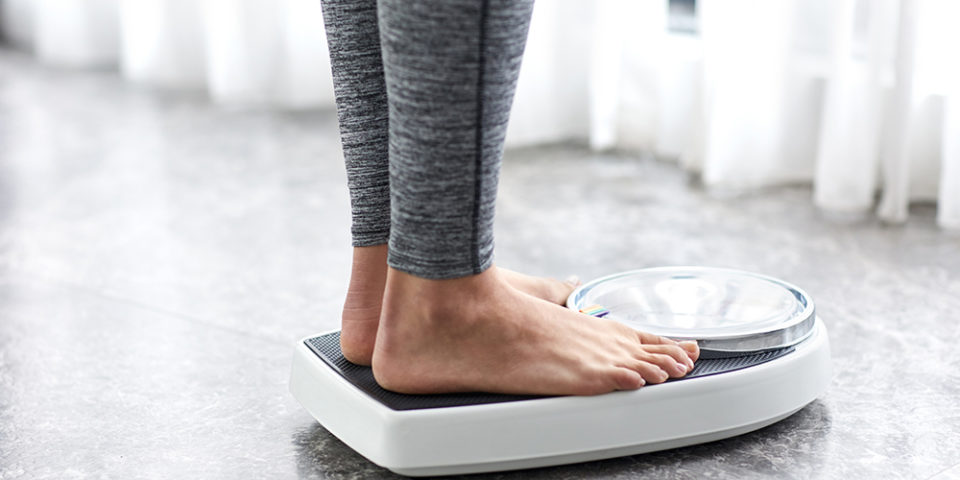Does improving health always mean losing weight?
With a new year often comes New Year’s resolutions, promises we make to ourselves for improvement in the year ahead. For many, those resolutions include improving our health by making lifestyle or diet changes at home. But does improving health always mean losing weight?
Lisa Money, RDN, busted common weight loss myths while offering simple lifestyle changes that can help the year ahead be your healthiest.
The scale can’t tell you how healthy you are
“There are a lot of common myths thrown around like concrete truths when it comes to what it means to be healthy,” said Money. “In many cases, these statements just aren’t true for everyone.”
- Myth #1: “If you are larger, you must lose weight to be healthy.” Family history heavily influences our baseline size when it comes to both height and weight. Your healthiest weight may be more than those magazine articles want you believe. Muscle also weighs more than fat, and so a muscular athlete may still be ‘overweight’ according to scales that don’t take actual physical fitness into account.
- Myth #2: “Everyone can lose weight through diet and exercise.” Restrictive diets are difficult to maintain for any length of time, and overexercise can wear your body out without providing tangible benefits. If your new diet forces you to restrict yourself from eating foods you love, it’s easy to feel overwhelmed and give up.
- Myth #3: “If you fail at weight loss, it’s because you weren’t committed enough.” Gut enzymes that help to signal hunger or fullness drop after weight loss and heavily restrictive diets can make it difficult not to regain the weight later.
You can’t tell someone’s health just by looking at them
“Wellness is about far more than physical appearance or the number on a scale,” said Money. “There are eight dimensions to wellness, including spiritual, financial, emotional, physical and fitness, occupational, diet, environmental and social wellness.”
A fad diet like keto or intermittent fasting can seem like a great idea, but their benefits don’t tend to last, and they often neglect key areas of nutrition. Money recommended not focusing on removing foods, but instead on what nutrient-rich foods you’re currently not eating. Make it a point not to eat less in general, but to eat more of those foods with exceptional health benefits like lean proteins, a variety of fruits and vegetables, whole grains and, if you are able, dairy.
Recognize what your body needs, and provide it
“Give yourself permission not just to exercise, but also to eat or to rest, depending on what your body is telling you it needs most,” said Money.
For many, “diet culture” makes it difficult to believe that it’s okay to genuinely love food, but what matters is that your foods are nutritious and delicious. A restrictive diet that removes the foods you most enjoy from your life is going to be incredibly difficult to stick to and is likely to be less than successful in the long run.
Instead, take the time to consider what your body is asking you for, and provide – whether that means a half-hour’s brisk walk, a good run, yoga, a hearty meal or a long, restful nap.
Track your habits, not calories or time in the gym
“One of the best ways to really make those lifestyle changes that we associate with New Year’s resolutions stick is to focus on the habit, not the tiny details,” said Money. “For instance, instead of tracking what you eat, consider whether you’re spending more on takeout or going out than you are on food you cook for yourself at home. Then, center your plan around ways to make it more convenient to cook for yourself and to include those flavors you love from takeout or restaurant food in your home-cooked meals.”
If you’re skipping meals, make it a point to eat regularly and provide your body with ongoing fuel to keep you going. Don’t eat with your eyes on your phone screen or the television, but instead enjoy each bite and take your time!
If you can’t remember when you dedicated time to physical fitness, take a quick walk and make sure you’re moving fast enough to feel your heart rate kick up a little bit.
Don’t believe you have to uproot your entire life to make a healthy choice. Making one or two small shifts at a time and focusing on the actions, not calorie counts or workout timers, may be just what you need to start improving your health long term.
Effective workouts from anywhere with MoveWell
MoveWell’s monthly workouts are conveniently designed to be performed from the comfort of home, in the office or even the great outdoors. Sign up for monthly workout alerts.
Sign Up Today

